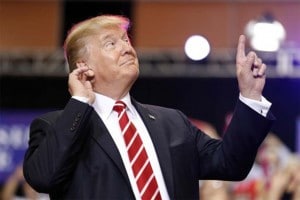
The announcement by the U.S. Secretary of the Treasury Steve Mnuchin that the Trump administration will suspend any plans to impose tariffs on Chinese imports lowers the risks for American and European carmakers, fearing the impact of a trade war.
Companies such as Mercedes-Benz and BMW, which export American-made vehicles to China, will apparently be spared, facing the substantial tariffs the Peoples Republic of China had proposed imposing on vehicles exported from the United States.

Importers of vehicles from China, such General Motors, also will be spared American tariffs on vehicles from Chinese factories.
The cooling of the trade fight also could make it easier for Guangzhou Automobile Corp.’s efforts to sell cars in the U.S. GAC executives have made a number of trips to the U.S. in recent months, including the National Automobile Dealers Association annual convention in March, to search for dealers willing to handle their vehicles.
(China to “significantly lower” tariffs on vehicles. Click Here for the story.)

Mnuchin and Larry Kudlow, the former cable new pundit, who is now Trump’s top economic adviser, said last weekend an agreement between Chinese and American negotiators set up a framework for addressing trade imbalances in the future.
“We are putting the trade war on hold. Right now, we have agreed to put the tariffs on hold while we try to execute the framework,” Mnuchin said in a television interview on “Fox News Sunday.”
On Saturday, as part of the preliminary deal, China would import more energy and agricultural commodities from the United States to close the $335 billion annual U.S. goods and services trade deficit with China.
(Click Here for details about China phasing out JV rule limiting foreign plant ownership.)
During an initial round of talks this month in Beijing, Washington demanded that China reduce its trade surplus by $200 billion. No dollar figure was cited in the countries’ joint statement issued Saturday.

Not everyone was pleased with the results of the trade talks between China and the U.S.
“American workers and businesses need a level playing field in China,” said Scott Paul, the president of the American Alliance for Manufacturing, a critic of U.S. free-trade practices and policies.
(To see more about Lincoln’s plans for five new models in China, Click Here.)
“I don’t think the joint statement moves us in any significant way toward that goal. Sometimes it’s better to walk away from the negotiating table to reinforce the point to China that our resolve is strong. We need more details, but I’m not encouraged by the direction these talks are headed.”







